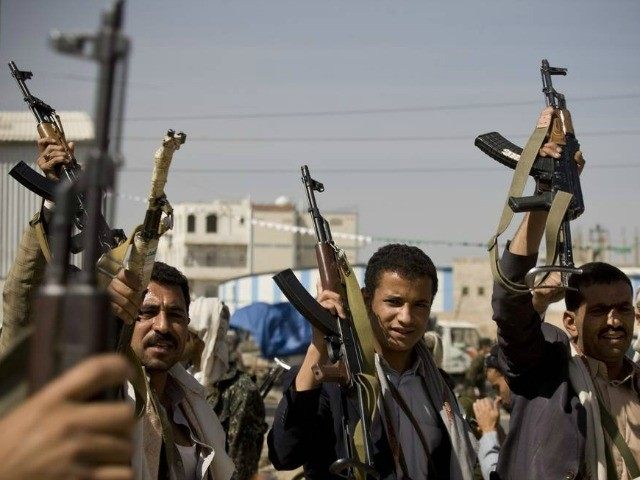The 15-member United Nations Security Council unanimously adopted a resolution demanding that the Iran-backed Houthi rebels “immediately and unconditionally” cede power in Yemen.
Nevertheless, the resolution cannot be enforced militarily, which is what Yemen’s Gulf neighbors have demanded.
It warns UN member nations against “external interference,” but without elaborating much. It also highlights a “readiness to take further steps” if the Houthis do not meet the council’s demands.
“Unanimously adopting a new resolution in a rare Sunday evening session, the Security Council expressed alarm at the acts of violence committed by the Houthis and their supporters, which have undermined the political transition process in Yemen, and jeopardized the country’s stability and unity, demanding that all Yemeni ‘parties cease all armed hostilities against the people and the legitimate authorities of Yemen,’” explains a press release from the UN Security Council.
The UN Security Council is made of 10 elected member states and five permanent members — the U.S., the U.K., France, China, and Russia.
A couple of days prior to the adoption of the resolution, UN Secretary General Ban Ki-Moon warned that “Yemen is collapsing before our eyes.”
Shiite Houthi rebels took over the U.S.-backed government in the Yemeni capital of Sanaa earlier this month.
Many nations, including the U.S., Britain, and France, have closed their embassies in Yemen. The Pentagon maintains that it is still capable of conducting counterterrorism operations inside Yemen.
Shiite Houthi rebels in Yemen “have been expanding south from their northern stronghold, putting them in conflict with al-Qaeda in Yemen (AQAP) and other Sunni groups,” reports BBC.
The UN chief also warned on February 12 that “widespread and lethal” attacks by AQAP and escalating hostilities between AQAP and the Houthis have pushed the country closer to civil war.
“Either the country will descend into civil war and disintegration, or the country will find a way to put the transition back on track,” said UN Special Adviser Jamal Benomar who is leading the UN-brokered political talks in Yemen. “This largely depends on the political will of Yemeni leaders. They all bear responsibility for the current state of affairs, as well as responsibility for finding a way to pull the country from the brink.”
The resolution demands that the Houthi rebels release the Yemeni president and prime minister as well as cabinet members and “all individuals under house arrest or arbitrarily detained.”
Gulf Cooperation Council members — Bahrain, Kuwait, Oman, Qatar, Saudi Arabia, and the United Arab Emirates — “had wanted the resolution to be adopted under Chapter Seven, which would allow it to be enforced militarily or through sanctions,” notes BBC, adding, “The Houthis are suspected of being backed by Iran, something both deny.”

COMMENTS
Please let us know if you're having issues with commenting.